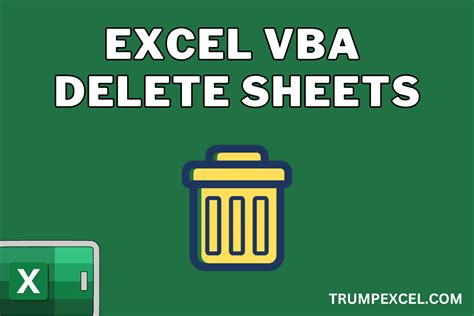5 Essential Documents for Renting a House
If you're on the hunt for a new place to call home, understanding the paperwork involved in renting a house can save you a lot of hassle. This guide will walk you through the 5 essential documents you'll need before signing any lease agreement, ensuring that both your and the landlord's interests are protected. Whether you're a first-time renter or a seasoned tenant, these documents will be the cornerstone of your rental journey.
The Lease Agreement
The lease agreement is perhaps the most crucial document in your rental process. Here’s what you should look for:
- Duration of the Lease: Understand whether it's a fixed-term or month-to-month lease.
- Rent Amount and Payment Details: Check for due dates, late fees, and grace periods.
- Security Deposit: Know the amount, conditions for its return, and any non-refundable fees.
- Maintenance and Repairs: Identify who is responsible for what.
- Rules and Regulations: This includes pet policies, subletting, and quiet hours.
- Termination Clause: This outlines how either party can end the lease early.
🚨 Note: Always review the lease thoroughly or have a legal expert look it over to avoid any surprises down the line.
Rental Application
Before you can call a place your new home, landlords will likely ask for a rental application. Here's what might be included:
- Personal Information: Full name, contact details, and current address.
- Employment History: Details on your job, income, and employment duration.
- References: Previous landlords or personal references.
- Credit Check Authorization: Allowing the landlord to check your credit history.
- Income Verification: Recent pay stubs or bank statements might be required.
- Criminal Background Check: Some landlords perform these checks.
📌 Note: Ensure you're truthful on your application; discrepancies can lead to your application being rejected.
Proof of Income
Landlords need assurance that you can afford the rent. This can be proven with:
- Pay Stubs: Showing consistent income.
- Bank Statements: To confirm your financial stability.
- Employer’s Letter: Sometimes, a letter from your employer detailing your salary and employment status is needed.
- Tax Returns: Occasionally, landlords might ask for your latest tax return for self-employed individuals.
💡 Note: The more financial stability you can demonstrate, the more comfortable the landlord will be with renting to you.
Proof of Identity
Identity verification is crucial for legal reasons and helps prevent fraud. Here are the typical documents:
- Driver’s License: A widely accepted form of ID.
- Passport: For international renters or those without a local ID.
- Other Government Issued ID: Like a National Identity Card or Voter ID.
👤 Note: Make sure your ID is current and matches the personal details on your application.
Rental Inspection Checklist
To protect yourself against unwarranted charges or disputes, create or get a rental inspection checklist:
- Condition of Property: Note any existing damage, maintenance needs, or cosmetic issues.
- Furniture and Appliances: If the rental comes furnished, inventory and condition check every item.
- Utilities and Fixtures: Test lights, plumbing, heating, and cooling systems.
- Cleanliness: Document the property's cleanliness to avoid end-of-lease disputes.
| Room/Area | Item | Condition | Notes |
|---|---|---|---|
| Living Room | Sofa | Good | No tears or stains |
| Kitchen | Refrigerator | Fair | Minor scratches; all functions work |
| Bedroom | Curtains | Poor | Faded, possibly need replacing |
By following this comprehensive list, you'll be able to address any issues with the landlord from the very beginning, ensuring clarity and agreement on the initial state of the property.
👁️ Note: Photos or videos documenting the condition can be helpful in case of future disputes.
Wrapping Up Your Rental Journey
Securing a rental home involves more than just finding a place that fits your needs and budget. The paperwork ensures that both parties, tenant and landlord, are on the same page. By thoroughly understanding and preparing these essential documents, you can enter into a rental agreement with confidence. Remember, these documents not only protect your rights but also lay the groundwork for a peaceful and mutually beneficial landlord-tenant relationship.
From the lease agreement, which outlines the terms of your stay, to the rental application that proves your credibility, to the proof of income that reassures the landlord of your financial stability, and the identity verification that establishes your legal presence, each document plays a vital role. And don't forget the rental inspection checklist, which could save you from unwarranted charges at the end of your lease.
With these documents in hand and a clear understanding of what each entails, you're set to embark on your rental journey with peace of mind.
What happens if I don’t provide proof of income?
+If you cannot provide proof of income, landlords might be hesitant to rent to you due to the risk of rent default. You might need a guarantor, pay a larger security deposit, or offer other assurances like prepaid rent.
Can the rental inspection checklist be used to negotiate repairs?
+Yes, highlighting existing damages or needed repairs can serve as a negotiation tool to get these issues addressed before you move in or to lower the rent temporarily.
What if I need to break the lease early?
+The lease will usually have a clause detailing the penalties for breaking the lease early. You might have to pay rent until a new tenant is found, forfeit your security deposit, or cover advertising costs for the landlord.



